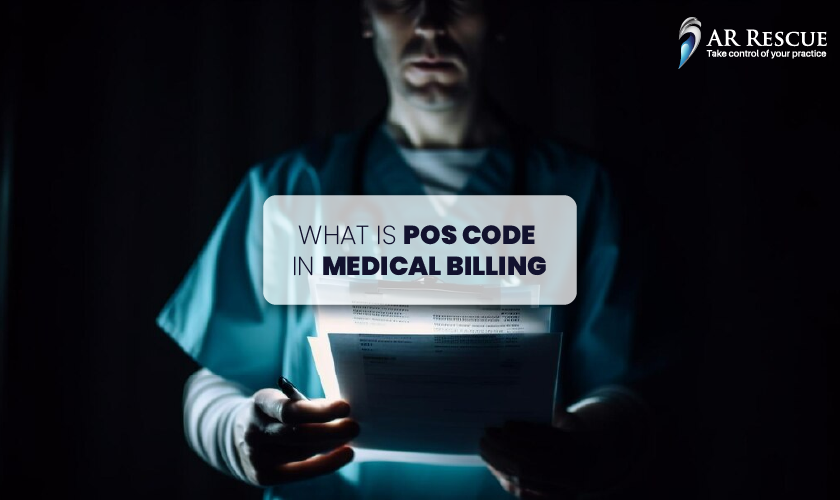A place of service (POS) code is a short code consisting of two numbers. It tells us where the medical service happened.
These codes are part of the Health Care Common Procedures Coding System (HCPCS).
These regulations must ensure that insurance claims are handled correctly and that healthcare providers are appropriately compensated.
Why they matter:
POS codes are necessary because they help:
- Make sure the fees are accurate.
- Deal with insurance claims quickly.
- Collect data for analysis and planning.
Different Types of POS Codes
There are many types of place of service codes, and each one shows a different healthcare location. Here are some common ones:
- Office – POS 11 – For duties performed in a physician’s office.
- Hospital Outpatient Services – POS 22 – A POS code for the hospital. When you receive services in the hospital outpatient department.
- Emergency Room – POS 23 – In a hospital emergency room.
- Urgent Care Center – POS 20 – For services in an urgent care center.
- Inpatient Hospital – POS 21 – For services performed while you are in the hospital.
- Ambulatory Surgical Center – POS 24 – For services performed in the surgical center.
- Nursing Home Office – POS 31 –For services in a nursing home.
- Pharmacy – POS 01 – For pharmaceutical services.
- At home – POS 12 – For domestic services.
These are just some examples, and more POS codes exist for different places.
How to Find the Correct POS Code
Here’s how you can find the one you’re looking for:
- Visit the CMS website – The Centers for Medicare & Medicaid Services (CMS) has a place of service codes list on their website.
- Use coding resources – Coders and billers can check POS codes in the database.
- Use billing software – Most billing software have coding features so you can choose the correct POS code.
- Get professional advice – If you need clarification, talk to medical billing experts—they can guide you.
Mistakes to Avoid with POS Codes
Using the wrong place of service code can cause billing errors and claim rejections. Here are some common errors to avoid:
- Don’t use a generic code like Office (POS 11) for all services. Use a code that corresponds to where the service occurred.
- POS codes can change over time, so update your coding practices to stay error-free.
- Some services may be more visible, such as telehealth services. Choosing the proper code can be challenging in such cases.
How Can POS Codes Affect Medical Billing
Place of service codes for medical billing are essential.
- Payment accuracy. Using the correct POS code ensures that healthcare providers receive the correct amount—essential to keeping medical practices thriving.
- Smooth claims process. Insurance companies need POS codes to process claims faster, and using the correct codes reduces the number of denial claims.
- Stay legal. Use the correct POS code and follow the billing rules as coding errors can cause some legal problems.
- Research and planning. Data collected through POS codes is helpful for health monitoring and planning. It shows how health services are used and helps allocate resources.
What’s the Role of Healthcare Providers and Billers In This?
Healthcare providers and medical billers/coders have an essential stake in this.
Healthcare providers:
Where services were provided by doctors, nurses, and other medical professionals, they should be recorded. The more specific it is, the better it is for accurate coding.
Medical billers and coders:
Medical coders and billers change the provider’s documentation into the correct POS code. They need to know the rules and regulations to do this effectively.
To Conclude
Place of Service (POS) codes make up many medical costs.
They help ensure that claims are correct, process insurance claims expeditiously, comply with regulations, and collect data for research purposes.
Coding can be confusing, but there are ways to get help making it work.
FAQs
What is a POS denial?
POS denials occur when your insurance claim is denied or unpaid due to a point of service (POS) code issue.
Is there a difference between a facility and a non-facility place of service code?
They use the facility’s POS code when you receive treatment at a facility such as a hospital or nursing home. The non-office POS code is used when receiving care at a physician’s office or outpatient clinic.
How do I know which insurance Place of Service (POS) codes to use?
You should check with your insurance company or the medical expense specialists at your healthcare provider’s office. Depending on where you got the treatment, you can be guided on using the POS code.

